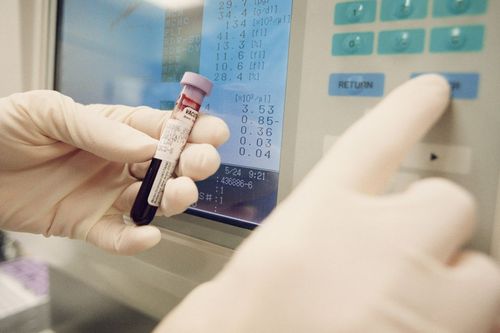Study: AI model also can predict effectiveness of cancer treatments by looking at immune defense cells.
October 13, 2022

Study: AI model also can predict effectiveness of cancer treatments by looking at immune defense cells.
A new study has revealed that an AI model can diagnose and determine treatments for skin cancer from a simple blood test.
Researchers at the University of Helsinki, HUS Comprehensive Cancer Center, Aalto University and Stanford University developed a model that can predict which treatments will work on patients based on a patient’s immune system.
The effectiveness of treatments for fighting melanoma depends on the patient’s defense system. The same treatment can either cure or have no effect on different patients.
The scientists theorized that therapies were ineffective if the immune cells didn’t recognize the skin cancer cells as toxic.
“Prior research has been unable to provide doctors with tools that would predict who will benefit from treatment that activates the defense system. said Dr. Jani Huuhtanen, the study’s researcher from the University of Helsinki and Aalto University. “The correct targeting of therapies is extremely important, since drug therapies are expensive and serious adverse effects fairly common,”
The team evaluated patient samples from almost 500 skin cancer patients and nearly 1,000 healthy humans. They also used a separate AI model developed at Stanford University. The scientists were able to narrow down the number of immune cells that detected skin cancer cells. Patients with skin cancer had a higher level of immune defensive cells that could fight cancer. This indicated that a blood test could detect skin cancer.
The study was published in Nature Communications. The work was done with open source software, making the model accessible to other scientists.
The minds behind the model are hoping the AI model can also be used to forecast treatment responses for new cancer drug therapies.
In the future, the researchers believe this finding can benefit other types of cancer.
“Our AI model is agile and adaptable, making it possible to calculate the number of cancer-sensing defensive cells also in the case of other cancers, including breast cancer, lung cancer and blood cancers,” added Dr. Huuhtanen.
You May Also Like
.jpg?width=700&auto=webp&quality=80&disable=upscale)
.jpg?width=700&auto=webp&quality=80&disable=upscale)
.jpg?width=700&auto=webp&quality=80&disable=upscale)



.jpg?width=300&auto=webp&quality=80&disable=upscale)
.jpg?width=300&auto=webp&quality=80&disable=upscale)